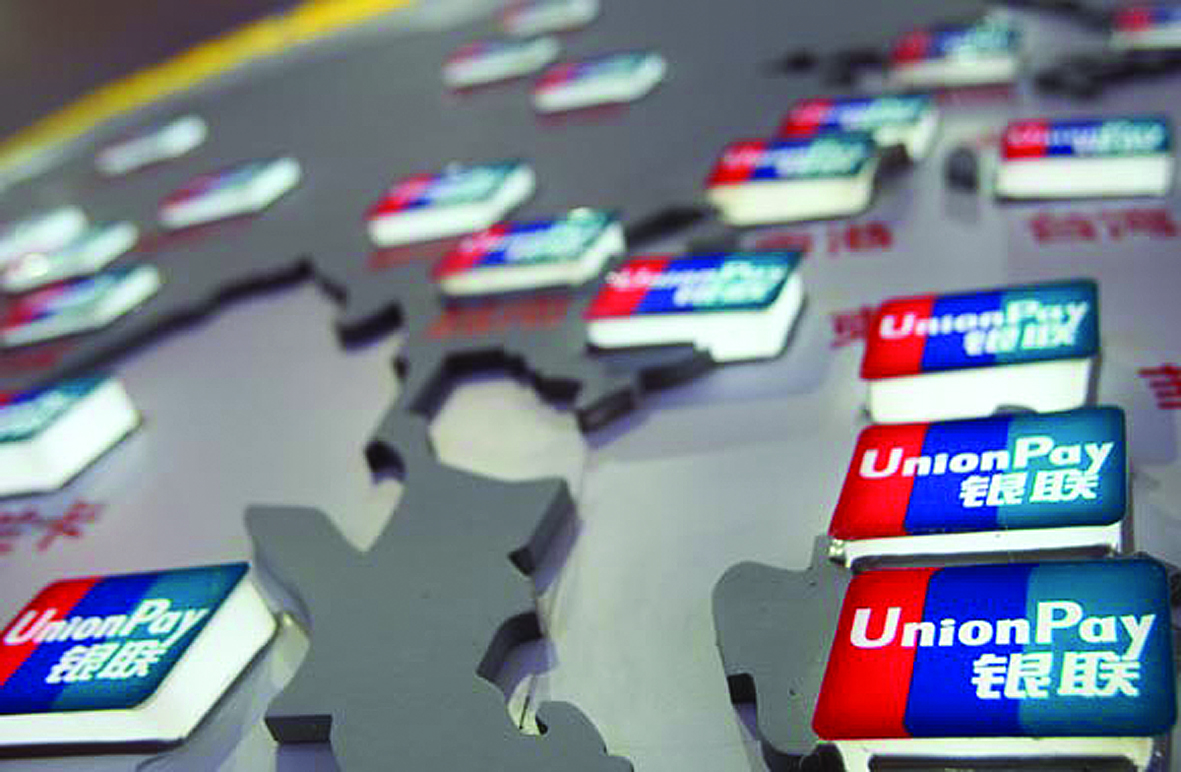Partnership opens door to Europeans buying into Chinese credit cards
By Wang Mingjie in London | chinadaily.com.cn | Updated: 2019-06-04 02:46

The Chinese financial services corporation China UnionPay has partnered with the British fintech enterprise Tribe Payments to start issuing debit and credit cards in Europe for the first time, with the aim of expanding internationally.
With a total of 7.6 billion issued bank cards in use, China UnionPay has enabled card acceptance in 174 countries and regions, and has issued cards in 52 countries and regions.
Wei Zhihong, UnionPay International's market director and the head of its European branch, said: "Working with innovative partners such as Tribe Payments is a key part of our expansion and growth in the European market, where we are accepted by 3.3 million merchants in over 40 countries."
Tribe Payments provides payment technology to banks, fintech companies, issuers, acquirers, and other businesses that provide payment services to merchants and consumers. It is Europe's only issuer processor working with Mastercard, Visa, and UnionPay International.
Suresh Vaghjiani, chief executive of the startup, said: "Consumers are now used to more choice and a better experience of financial products – but the fintech revolution has yet to reach other payment providers. These organizations rely on legacy infrastructure.Too often that represents a compromise between speed and scale – it either takes months or years to deliver or, if delivered too quickly, will often be plagued by instability."
He said that will not be the case with this partnership.
George Yip, an emeritus professor of marketing and strategy at Imperial College Business School, said UnionPay partnering with an innovative fintech company is a good idea, but he noted that the international expansion will not be without challenges.
"A Chinese financial services company will find it much harder than Chinese products companies to expand internationally, as they will not have the labor cost and other manufacturing advantages of product companies," Yip said.
Jonathan Reynolds, an associate professor in retail marketing at Oxford University, said: "Given the pressures that UnionPay is experiencing from challenges to its market share in China, thanks to the success of Alipay and WeChat Pay, it is perhaps unsurprising that the firm is looking for growth elsewhere, through its partnership with Tribe."
Because European consumers are very familiar with the United States brands Visa and Mastercard, Reynolds cautions that there may not be much room for another big brand, particularly given that the US companies are no longer complacent about their prospects in Europe and that they are now innovating.
Reynolds said targeting already mature European payment markets in a business model with relatively conventional origins might seem like an odd choice, but"a partnership with Tribe – whose founders have cut their teeth in European challenger bank markets – is a creative way to do it".
But, he said, "from previous experience in retail and other sectors, that collaboration between Chinese and European partners is not always straightforward, not least culturally".
"It will be interesting to see how the relationship develops," he said.
Jeffrey Towson, a professor of investment at Peking University, noted that Tribe is still a small company, but he said the startup appears to be attempting to modularize and disrupt the traditional bank payment network.
"If that works, it could create an interesting competing service," he said.
Towson said UnionPay is strong with merchants in Europe who want to sell to Chinese consumers.
"The challenge is to get Europeans to carry UnionPay cards and maybe to get European banks to issue them," he said. "There is no obvious path to this but UnionPay is clever and they may break in by clever strategy or acquisitions over time."
In China, many people no-longer carry cash, so the significant question will be; when Chinese people travel to Europe, will they be able to be cashless?
Hua Shan, a lecturer in accounting at the University of Surrey, said foreign transaction charges will likely determine how often people will use their cards when abroad, and how much cash they will carry.
"Consistency is likely to be another issue," Hua said. "UnionPay would need to be as readily accepted as Mastercard and Visa. It may take a long time to achieve this, particularly among small businesses."
Ian Mason, head of financial services at the law firm Gowling WLG, said: "The UK tech business partner market will always be an attractive one where global partners are concerned. The nature of this deal, therefore, is such that it may well act as a pre-cursor for similar, or even larger, cross-border partnerships on fintech to emerge – exciting times ahead."
























